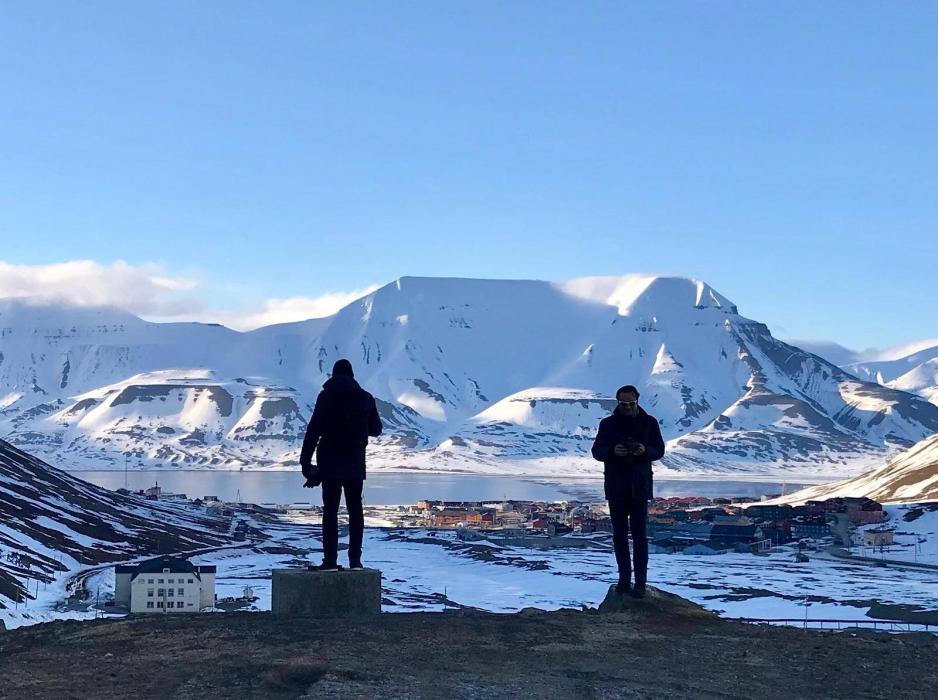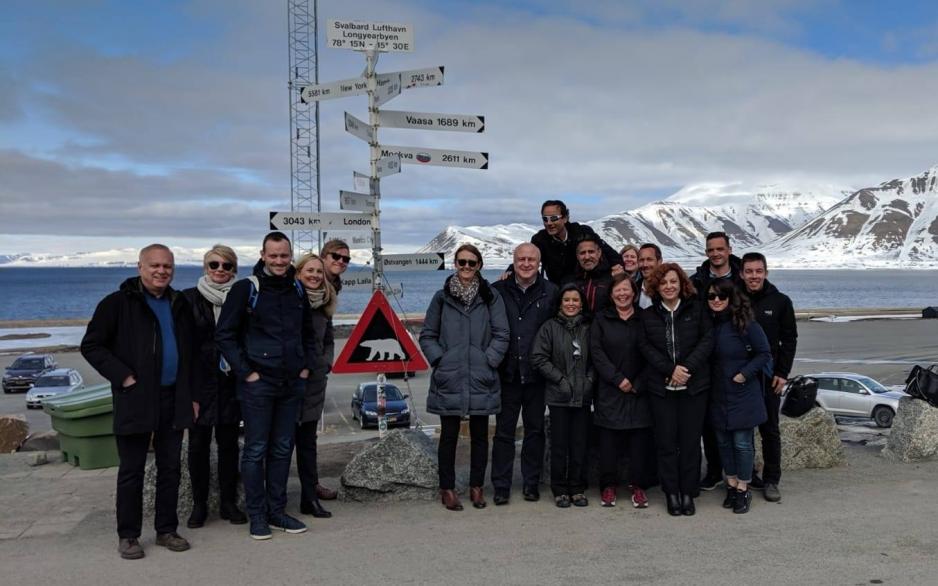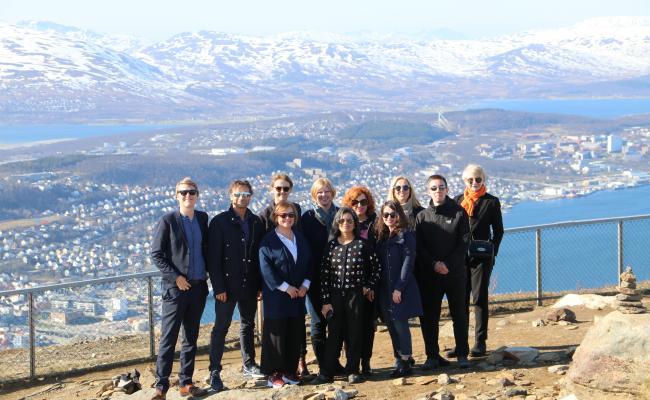In Visit to Arctic Region, PA Leadership Explores Local and Global Impact of Climate Change

PA members were sensitized to the severe disruptions in the Arctic environment caused by a rise of temperatures in the region. They also discussed ways to mitigate and adapt to climate change in the High North with local authorities. Photo by: OSCE PA
In a series of seminars and field visits in Tromsø and Svalbard, Members were sensitized to the severe disruptions to the Arctic environment caused by a rise of temperatures in the region.
LONGYEARBYEN, 23 May 2019: The concrete impact of global warming and the changing nature of the Arctic region were the focus of an OSCE PA visit hosted by the Norwegian parliament this week. In Svalbard, one of the world’s northernmost inhabited areas, OSCE parliamentarians explored new local realities in the High North and considered how climate change poses security risks for the entire OSCE region, OSCE Parliamentary Assembly writes in a pressrelease.
Also read
The PA delegation included President George Tsereteli, Second Committee Chair Nilza de Sena and Rapporteur Elona Gjebrea Hoxha, and Secretary General Roberto Montella. It was joined north of the Arctic Circle by the Delegation of Norway to the OSCE PA.
In a series of seminars and field visits in Tromsø and Svalbard, Members were sensitized to the severe disruptions to the Arctic environment caused by a rise of temperatures in the region.
“The Arctic is warming up twice as fast any other region in the world, and in just one generation we have been able to note critical alterations to the local fauna and flora. Here in Svalbard, we can clearly observe how Arctic livelihoods are being impacted,” said Norwegian Head of Delegation Siv Mossleth.
Important to understand
OSCE parliamentarians also discussed ways to mitigate and adapt to climate change in the High North with local authorities.
“This visit is important for us to better understand the concerns emerging from Norway and other Arctic countries, and we can find inspiration in their close co-operation to promote sustainable development and protect biodiversity,” said President George Tsereteli. “As a forum of 57 countries covering the Northern Hemisphere, the OSCE PA is ideally suited to encourage discussions on these new threats and to promote a deeper involvement of parliamentarians in the fight against climate change.”
The study visit illustrated the importance of monitoring variations in the Arctic ecosystem, and of understanding the ripple effect of changes in the Arctic climate, according to the pressrelease.

The OSCE PA field visit to the Arctic region continued yesterday and today in the Svalbard archipelago, one of the northernmost inhabited areas in the world. Photo by: OSCE PA
“The Svalbard archipelago is one of the most sensitive areas to global warming, and the tangible impact on the Arctic environment and ecosystem we witness here causes disruptions at a larger scale in the rest of the world,” said the Chair of the OSCE PA’s economic and environmental committee, Nilza de Sena.
“While few live in the Arctic region, the risks associated with climate-related disasters have become a reality for more and more people on the globe. This compels us to act with urgency to strengthen the global response to the threat of climate change.”
Urgent to curb emissions
Throughout the visit, participants were briefed on Arctic exploration, satellite observation, and other environmental research efforts undertaken to understand climate change and its impact on the Arctic region. Experts and scientists underlined the urgency to curb global greenhouse-gas emissions in order to limit the effects of climate change.
“Even if drastic measures are taken, it will still take time for the climate to stabilize. But real action is necessary to prevent a complete shift,” said Second Committee Rapporteur Elona Gjebrea Hoxha. “It is therefore crucial to increase the awareness of parliamentarians all across the OSCE region and respond to this challenge before it is too late.”
Debates
The visit will inform debates of the OSCE PA’s General Committee on Economic Affairs, Science, Technology and Environment at the upcoming Luxembourg Annual Session (4-8 July 2019). The PA’s flagship event will be held this year under the theme “Advancing Sustainable Development to Promote Security: The Role of Parliaments.”
“It is important to closely engage parliamentarians to address the effects of climate change,” said Secretary General Roberto Montella. “I expect the discussions we have had this week will reinforce the Parliamentary Assembly’s engagement on Arctic issues, and we stand ready to support greater international co-operation and dialogue to respond to security, economic and environmental concerns in the High North and beyond.”
The visit continues Friday in Oslo, where President Tsereteli and his delegation will hold talks with Storting President Tone Trøen, Minister for Climate and Environment Ola Elvestuen, and Foreign Affairs State Secretary Marianne Hagen.


